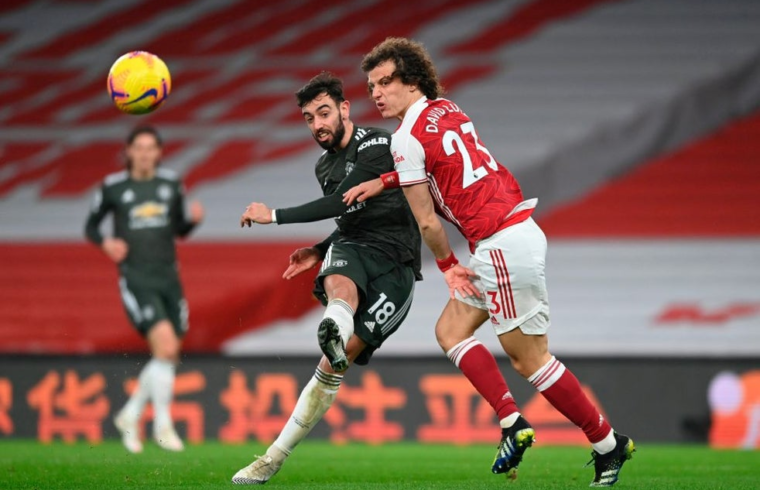
A point both sides will take, although it gives neither much of a boost. That currently feels more costly to Manchester United, as they lose more ground to Manchester City. This 0-0 draw at Arsenal at least ensured they didn’t follow defeat with defeat – and streak with streak – in the way that has become one of the more frustrating trends of Ole Gunnar Solskjaer’s side. Mikel Arteta’s team are meanwhile seven games unbeaten in the league now, as pragmatic tactics in the absence of Bukayo Sako and Pierre-Emerick Aubameyang ensured they frustrated United.
Solskjaer’s side at least stood their ground after Wednesday’s slip to Sheffield United, but the reality is they need to start making strides. City have suddenly gone three points clear in the space of a few days, and that with a game in hand.
It might just be things naturally levelling out as we go past the halfway stage, and it’s possible United’s true objective was always making top four while showing progress. Maybe that’s what this match really showed. The feeling always was they were never as good as that recent run of results looked, Arsenal never as bad as that dismal early winter run appeared.
The result of this match bore that reality out, with the general pattern of play pointing to the different qualities of the squads, and the different stages of development. United had the better of the play and the chances, Arsenal were forced to defend, but both approaches ended up cancelling each other out in a classic clash of styles: counter against attack. This wasn’t coincidence of course. They were concerted gameplans.
Both managers had evidently recognised something in the other.
Lacazette carries the ball forward
(Getty)
Solskjaer might well argue his side should have been ahead early on. The fact they were not was down to a mix of bad luck, bad finishing and some good defending.
Arsenal were impressively resilient, putting in full-bodied blocks at every United half-chance. Two fell to Marcus Rashford, who showed admirable footwork with the second, but probably should have been quicker to shoot when Bernd Leno was briefly exposed.
It was just another frustrating element to the game for the forward. Shortly after Cedric Soares had been booked, Solskjaer ran to the edge of his technical area to point in the full-back’s direction and shout at Rashford, “Marcus, he cannot defend. He cannot defend. Take him on if you want.”
Marcus Rashford takes on David Luiz
(Getty)
The problem was Rashford rarely got another opportunity. Arsenal were generally holding their line well. It meant two of United’s better chances fell to the player opposition defences would most accept. Aaron Wan-Bissaka may be a fine defender – as he proved with one second-half block – but his finishing technique is some way short of that. He fluffed one first-time finish and headed wide from a set-piece. His abilities are best used at the other end, such as when he blocked one Willian shot.
You can’t quite say that of Edinson Cavani, who missed the chance of the game. With the goal gaping after a second-half break from Luke Shaw – the ball admittedly coming in at speed – he somehow directed a shot wide of the past. It looked even worse because Leno had managed to actually run past the post.
Bruno Fernandes gets his shot away past David Luiz
(Getty)
Beyond that, though, it was as if Arsenal were under siege but not quite under pressure. They felt resolute. They only occasionally looked dangerous in response. Two of those occasions naturally involved Emile Smith-Rowe, with one brilliant break from deep releasing Nicolas Pepe to curl a shot just wide, before the two combined for an almost identical effort that went that bit closer in the second half. Having run himself into the ground, by covering so much of the pitch, Smith-Rowe was later taken off to give Martin Odegaard his debut. He didn’t sparkle.
The closest Arsenal came was when Andre Lacazette, so often crowded out in general play, hit the underside of the crossbar with a fine free-kick.
It was close as anyone got to a goal. The main consequence of the game is United falling further away from City.









